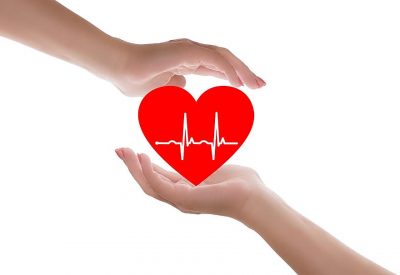Corona Wars Have Exposed Institutional Corruption: The Fulcrum of Autonomy in a Brave New World of Healthcare

All Global Research articles can be read in 51 languages by activating the Translate Website button below the author’s name.
To receive Global Research’s Daily Newsletter (selected articles), click here.
Click the share button above to email/forward this article to your friends and colleagues. Follow us on Instagram and Twitter and subscribe to our Telegram Channel. Feel free to repost and share widely Global Research articles.
***
I suppose I have been contemplating the contours of an ideal form of “Medicine” forever, certainly ever since beginning my formal institutional studies that led to my M.D.
Three years of the Corona Wars have exposed institutional corruption at virtually every level: governments, their ministries, the medical councils that purport to protect their citizens by regulating those who practice medicine, the global entities inextricably entwined, for example, the United Nations and the World Health Organization.
We’ve seen over these past three years how vaccines have come to be redefined, how informed consent has been minimized, how the Hippocratic Oath has lost its charm for the globalist agenda seeking to instill fear into the population of the world and to inject this population with a gene-altering thrombogenic concoction using the arts of seduction and force.
So, the dust having been settled, from within this rubble of institutional malfeasance, we have an opportunity to start afresh – we people who have recognized the perverse role of the pharmaceutical industrial complex with its the so-called New World Order aspirations.
Let’s start with doctors and the authority with which they have been imbued, and the power with which scientific research facilities and hospitals have been cloaked by those who, suffering, are at their mercy.
Every encounter between a patient and a doctor is itself permeated by aspects of this force: even kings of an earthly realm have been humbled, when weak and stricken, by their physicians.
It is time to level the playing field, and to support a form of patient-guided self-healing in which the individual becomes the master of his or her own treatment. After all, the typical first step for any afflicted individual is a self-healing one; only when this fails does he or she reach out to a professional authority, an authority whose regulation is monopolized by the State.
This authority may now take on a new shape and may be redefined.
Let us leave aside for the moment Big Medicine, by which I mean the medicine of highly technical procedures and expensive equipment and operating rooms and surgeries, the Medicine of acute trauma care and complex imaging, which by my estimation accounts for a small percentage of health.
Let us focus instead on areas of nutrition, prevention, early detection of ailments, and natural treatments for conditions that comprise the bulk of GP consultations. Diabetes, hypertension, cardiovascular health – it seems to me that these can be addressed readily and successfully by integrative and ‘alternative’ medical approaches that rely far less on proprietary pharmaceuticals and far more on homeopathic approaches. But whatever the type of intervention, at the core of what I am proposing is a clear and purposeful demystification of the doctor or healer – a demystification that does not detract from an acknowledgment of expertise, but that establishes the patient on a level playing field, as it were.
In psychoanalysis the discovery by Freud of what we call ‘transference’ led to an immense research into the meaning and uses of the emotional constellations projected or transferred onto the analyst. It involved a recognition of the creation of authoritative power – a power created by the patient himself which, at the end of a successful analysis, would be dissipated or analyzed away sufficiently until the patient could proceed independently. In summary, the goal of analysis is self-analysis: autonomy.
By these lights a new system would be one of egalitarian cooperation. A patient would be free to educate himself and to choose interventions, approaches, medicines, and treatments in accordance with his or her needs.
How this may be practically implemented I will have to leave to others whose powers of creative organization are far greater than mine. I can imagine flourishing wellness centers, widespread communicative consultation enabled by the internet, programs emphasizing health rather than focused on and organized principally around disease … In fact, I am aware of initiatives here in New Zealand and around the world that have begun to implement such ideas.
But it is the fulcrum of autonomy that is essential, whatever lever may be used, and the end of the millennial tradition in Western medicine that deified physicians. It will mean also the end of the reign of the monstrous public and private entities and corporations that have so thoroughly betrayed us these past three years.
*
Note to readers: Please click the share button above. Follow us on Instagram and Twitter and subscribe to our Telegram Channel. Feel free to repost and share widely Global Research articles.
Dr. Garcia is a Philadelphia-born psychoanalyst and psychiatrist who emigrated to New Zealand in 2006. He has authored articles ranging from explorations of psychoanalytic technique, the psychology of creativity in music (Mahler, Rachmaninoff, Scriabin, Delius), and politics. He is also a poet, novelist and theatrical director. He retired from psychiatric practice in 2021 after working in the public sector in New Zealand. Visit his substack at https://newzealanddoc.substack.com/
He is a regular contributor to Global Research.

